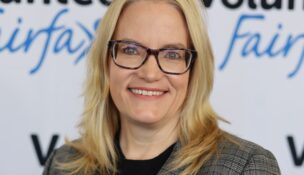Former governor emphasizes the importance of context and preparation
Former governor emphasizes the importance of context and preparation
Gerald Baliles worked for many years as an attorney after his four-year term as governor of Virginia ended in 1990.
Once while representing an international airline coalition, he flew to a foreign country for a series of business meetings. The visit included a brief courtesy call on the country’s president.
Baliles flew in on a Friday night and spent Saturday visiting museums in the capital city. When he met the president on Monday morning, the man was impressed with Baliles’ grasp of the country’s history and culture.
“Who are you here to see?” the president asked. Baliles gave him a list of names. “That’s not high enough,” the president said, as he pushed a button on his phone.
The result was that task that Baliles had expected to take a week instead was completed in about 48 hours.
“You know, it doesn’t hurt to do your homework,” he says.
Baliles tells this story during an interview at his Charlottesville office as he explains the importance of context in making a persuasive proposal.
“Regardless of your audience, you have to understand the importance of context,” he says. “How does this particular thing fit into a larger scheme of things? If you understand context, and if you can prepare, you can persuade.”
Baliles was talking about his strategy in conducting trade missions. Much of his tenure as governor, from 1986 to 1990, was spent preparing Virginia to become competitive in an increasingly international marketplace. That objective drove not only his trade missions but also his initiatives in transportation and education.
“I’ve always thought that education and transportation are the building blocks for economic development,” he says.
Estelle Jackson, a former Virginia Business associate editor, accompanied Baliles on a 1987 trade mission to Japan and described the results of his meticulous preparation.
“He dons local customs like others pull on gloves. During a formal exchange of business cars with top officials of Sumitomo Heavy Industries Ltd., he acted perfectly at home in the company’s stately guest house in Tokyo …
“Baliles adapted to the Japanese pace, in which formalities invariably preceded business. But, as one aide noted, the chief executive’s laid-back manner belied the salesman ready to spring into action when offered the opportunity.”
Baliles remembers pulling out maps to show international business prospects where Virginia is located in relation to better-known U.S. sites. For example, he would point out Washington, D.C., adding that Virginia is right next door.
“Those that liked to be close to power immediately grasped the importance of Virginia’s geography,” Baliles says. Again, the importance of context.
Baliles also would point out the location of Virginia’s ports, telling business prospects that Virginia would be the first state on the East Coast to dredge its harbor to a depth of 50 feet.
The Virginia governor, in fact, had had a role in the dredging project that dated to his days as a member of the House of Delegates. He sponsored a bill creating a state office to monitor federal legislation.
When he became governor, that office alerted him to a minor provision in a massive congressional bill. The legislation would provide matching federal funds to states trying to deepen their channels.
Baliles put $11 million in the state budget for dredging and asked then-Sen. John Warner to ensure the federal budget included a matching amount. The combined funding allowed the port to dredge to 50 feet.
The project was designed to be the first step in a two-part process that eventually would deepen the channel to 55 feet. The second phase, however, was never funded.
In an effort to revitalize the project, the Port of Virginia and U.S. Army Corps of Engineers agreed last year to share the cost of a three-year feasibility study to dredge the channel to 55 feet. Virginia remains the only East Coast port with authorization to dredge that deep.
The port anecdote leads to Baliles’ thoughts about “strategic investments” by state government in education, transportation and other areas, which may not make dividends for years.
“For most of the challenges that governors and legislators have to address, there are no simple solutions,” he says. “It requires knowledge of the problem, a study of the issues, an analysis of options and the willingness to make a decision. I think what we sometimes fail to do is we fail to demand the most of ourselves. We’re not always willing to test the limits of our reach…
“The thing that we sometimes forget is that a growing state has growing needs, and Virginia is a growing state,” Baliles says.
l
















